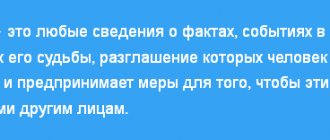Article 152 of the Labor Code: what's new?
The rules for overtime pay have long been firmly established. Some cardinal and massive changes in Art. 152 of the Labor Code of the Russian Federation was not introduced from the very beginning of the Labor Code.
The only innovation in recent years has been a special procedure, different from that provided for in Article 152, of compensation for overtime work for employees of some organizations associated with the upcoming 2017–2018 football events in our country. – 2022 FIFA Confederations Cup and 2018 FIFA World Cup. This order is enshrined in Art. 11 of the law of 06/07/2013 No. 108-FZ.
Human trafficking
In 2003, Article 152 of the Criminal Code of the Russian Federation lost force, and some of its provisions were transferred to Article 127.1 “Trafficking in Persons” of the Criminal Code. This provision refers to trafficking in persons, which may include minors. Lawyers decided to eliminate the old norm due to its inconsistency with the chapter of the Code. Chapter 20, which contained Article 152 of the Criminal Code of the Russian Federation, was devoted to crimes against minors and families. The norm itself is more suitable for Chapter 17, which talks about crimes against honor, freedom and dignity of the individual.
Today, the sanction for buying and selling people is imprisonment for a term of up to six years. For the same crime against minors, the court can impose up to 15 years in prison.
How are overtime hours compensated?
In organizations not associated with big football, overtime is compensated at the employee’s discretion:
- increased salary;
- additional rest.
For monetary compensation, the Labor Code of the Russian Federation establishes a minimum payment: one and a half times for the first 2 hours, double for all subsequent hours.
The duration of the rest must be no less than the processing time. In this case, time worked in excess of the norm is paid in the usual single amount.
These are all legal minimums. The organization has the right to increase pay or increase rest time.
What should you pay extra for?
Increased pay is due in cases where, at the initiative of the employer, the employee works longer than his working day (shift) lasts, and in the case of cumulative accounting, he works more working hours than the normal number of hours during the accounting period.
In order to correctly determine the scale of processing, strict accounting of the time worked by each member of the workforce is necessary.
Overtime does not include and, accordingly, is not paid additionally:
- delays at work on the initiative of the employee himself. They do not pay extra for them and do not provide time off (see letter of Rostrud dated March 18, 2008 No. 658-6-0);
- overtime of personnel with irregular working hours. They are entitled to additional leave for excess expenses.
You can learn more about it from the article “Additional leave for irregular working hours .
Are there any restrictions on overtime work?
Of course there is.
Overtime should not be part of the system. An employer can only occasionally engage an employee additionally.
Overtime should not exceed 4 hours for 2 consecutive days and 120 hours per year.
Violation of the norms is punishable by an administrative fine on the organization and its officials under Part 1, and in case of repeated violation - under Part 4 of Art. 5.27 Code of Administrative Offenses of the Russian Federation.
Read about restrictions on overtime work in the article “When is it permissible to hire an employee to work overtime?” .
Sanctions for trafficking in minors
According to Article 152 of the Criminal Code of the Russian Federation, Part 2, for the purchase and sale of minors, a sanction was provided in the form of compulsory labor for a period of 160 to 240 hours. Other options for sanctions are correctional labor for up to two years or imprisonment from 3 to 5 years. The criminal act can be complicated if, during the purchase and sale, injuries incompatible with life were inflicted on a minor, that is, the death of a child will entail imprisonment for up to 15 years.
Aggravating circumstances included prior conspiracy or organization of a criminal group. In this case, the Criminal Code referred to Article 141, which refers to a sanction in the form of arrest for up to 5 years.
Is overtime work on weekends and holidays?
No is not.
Payment for work on weekends and holidays is made according to its own rules - no less than double the amount (Article 153 of the Labor Code of the Russian Federation).
About the features of “holiday” pay when working in shift conditions, read the article “Payment for holidays during a shift work schedule .
When calculating overtime, they first find out whether the extra-limit time applies to weekends and holidays, and only then include it in the calculation - so as not to overestimate the amount of the surcharge, increasing it for two reasons at once.
Rules of user conduct on the site
Article 149 of the Labor Code of the Russian Federation:
When performing work in conditions deviating from normal (when performing work of various qualifications, combining professions (positions), overtime work, working at night, weekends and non-working holidays and when performing work in other conditions deviating from normal), the employee is subject to appropriate payments provided for by labor legislation and other regulatory legal acts containing labor law norms, collective agreements, agreements, local regulations, and employment contracts. The amounts of payments established by a collective agreement, agreements, local regulations, employment contract cannot be lower than those established by labor legislation and other regulations containing labor law norms.
Article 150 of the Labor Code of the Russian Federation:
When an employee with a time wage performs work of various qualifications, his work is paid for work of a higher qualification.
When an employee with piecework wages performs work of various qualifications, his work is paid according to the rates of the work he performs.
In cases where, taking into account the nature of production, workers with piecework wages are entrusted with performing work that is charged below the grades assigned to them, the employer is obliged to pay them the difference between grades.
Article 151 of the Labor Code of the Russian Federation:
When combining professions (positions), expanding service areas, increasing the volume of work, or performing the duties of a temporarily absent employee without release from work specified in the employment contract, the employee is paid additionally.
The amount of additional payment is established by agreement of the parties to the employment contract, taking into account the content and (or) volume of additional work (Article 60.2 of this Code).
Article 152 of the Labor Code of the Russian Federation:
Overtime work is paid for the first two hours of work at least one and a half times the rate, for subsequent hours - at least twice the rate. Specific amounts of payment for overtime work may be determined by a collective agreement, local regulations or an employment contract. At the request of the employee, overtime work, instead of increased pay, can be compensated by providing additional rest time, but not less than the time worked overtime.
Part 2 of Article 95 of the Labor Code of the Russian Federation:
In continuously operating organizations and in certain types of work, where it is impossible to reduce the duration of work (shift) on a pre-holiday day, overtime is compensated by providing the employee with additional rest time or, with the employee’s consent, payment according to the standards established for overtime work.
Article 153 of the Labor Code of the Russian Federation:
Work on a weekend or a non-working holiday is paid at least double the amount:
- piece workers - no less than double piece rates;
- employees whose work is paid at daily and hourly tariff rates - in the amount of at least double the daily or hourly tariff rate;
- employees receiving a salary (official salary) - in the amount of at least a single daily or hourly rate (part of the salary (official salary) for a day or hour of work) in excess of the salary (official salary), if work on a day off or a non-working holiday was carried out on within the limits of the monthly working time standard, and in an amount of at least double the daily or hourly rate (part of the salary (official salary) for a day or hour of work) in excess of the salary (official salary), if the work was performed in excess of the monthly working time standard.
Specific amounts of payment for work on a day off or a non-working holiday may be established by a collective agreement, a local regulatory act adopted taking into account the opinion of the representative body of employees, or an employment contract.
At the request of an employee who worked on a day off or a non-working holiday, he may be given another day of rest. In this case, work on a weekend or a non-working holiday is paid in a single amount, and a day of rest is not subject to payment.
Remuneration for work on weekends and non-working holidays of creative workers of the media, cinematography organizations, television and video crews, theaters, theatrical and concert organizations, circuses and other persons involved in the creation and (or) performance (exhibition) of works, in accordance with lists of jobs, professions, positions of these workers, approved by the Government of the Russian Federation, taking into account the opinion of the Russian Tripartite Commission for the Regulation of Social and Labor Relations, can be determined on the basis of a collective agreement, a local regulatory act, or an employment contract.
Article 154 of the Labor Code of the Russian Federation:
Each hour of work at night is paid at an increased rate compared to work under normal conditions, but not lower than the amounts established by labor legislation and other regulatory legal acts containing labor law norms.
The minimum increases in wages for night work are established by the Government of the Russian Federation, taking into account the opinion of the Russian Tripartite Commission for the Regulation of Social and Labor Relations.
The specific amounts of increased wages for night work are established by a collective agreement, a local regulatory act adopted taking into account the opinion of the representative body of workers, and an employment contract.
Decree of the Government of the Russian Federation of July 22, 2008 N 554 “On the minimum amount of increase in wages for work at night”:
The minimum increase in wages for work at night (from 10 p.m. to 6 a.m.) is 20 percent of the hourly tariff rate (salary (official salary) calculated per hour of work) for each hour of work at night.
Explanation of the State Committee for Labor of the USSR, the Secretariat of the All-Union Central Council of Trade Unions “On the procedure for calculating hourly wage rates for employees whose work is paid at daily and monthly rates (salaries), to determine additional wages for work at night” (approved by the Resolution of the State Committee for Labor of the USSR, the Secretariat of the All-Union Central Council of Trade Unions dated December 27. 1972 N 383/35):
The State Committee of the USSR Council of Ministers on Labor and Wages and the Secretariat of the All-Union Central Council of Trade Unions explain:
Hourly tariff rates for determining additional wages for work at night are calculated:
workers whose work is paid at daily tariff rates, by dividing the daily rate by the corresponding length of the working day (in hours) established by law for this category of workers;
employees whose work is paid at monthly rates (salaries), by dividing the monthly rate (salary) by the number of working hours according to the calendar in a given month.
Part 2 of Article 290 of the Labor Code of the Russian Federation:
Employees who have entered into an employment contract for a period of up to two months may, within this period, be required, with their written consent, to work on weekends and non-working holidays.
Work on weekends and non-working holidays is compensated in cash at least double the amount.
Part 6 of Article 348.1 of the Labor Code of the Russian Federation:
Peculiarities of remuneration for athletes and coaches at night, on weekends and non-working holidays can be established by collective agreements, agreements, and local regulations.
Clauses 13, 16 and 24 of the Regulations “On the peculiarities of working hours and rest time for crew members (civilian personnel) of support vessels of the Armed Forces of the Russian Federation” (approved by Order of the Minister of Defense of the Russian Federation dated May 16, 2003 N 170):
13. On ships, it is allowed, in exceptional cases, for other employees to perform the duties of short-staffed crew members on running or berthing watches, and maintenance personnel, with payment for overtime working beyond normal working hours. At the same time, the fulfillment of the duties of the service personnel lacking in the staff is assigned only to persons belonging to the service personnel.
16. The conditions and amounts of remuneration for ship crew members involved during the operation of the ship to perform the duties of short-staffed workers in excess of normal working hours are established by an industry agreement and a collective agreement in accordance with the Labor Code of the Russian Federation.
24. In cases where it is impossible to provide crew members of ships with full days of rest, it is allowed, with the consent of the crew members of these ships, to pay for work on weekends and holidays in the amount provided for by the labor legislation of the Russian Federation.
Clause 17 of the Regulations “On the working time and rest time of employees of dining cars and employees of ship restaurants of sea and river transport, workers of bench cars and other similar trade and public catering enterprises” (approved by Resolution of the State Committee for Labor of the USSR, the Secretariat of the All-Union Central Council of Trade Unions dated 09.12.1964 N 431/25):
17. Payment to employees for additional days of rest (time off), not used by them during the period of mass transportation (navigation) and transferred to the autumn-winter (inter-navigation) period during a sharp reduction in the volume of work, is made based on the tariff rate (salary) on the day of provision time off without taking into account bonuses, which are paid in full at the end of the month for which they were accrued.
Clause 5 of the Regulations on the peculiarities of the working hours and rest time of crew members from among the civilian personnel of border patrol vessels and boats (approved by Order of the FSB of the Russian Federation dated 04/07/2007 N 161):
15. In cases where it is impossible for crew members to be given full rest days, with their consent, payment for work on weekends and holidays is allowed in the amount provided for by the labor legislation of the Russian Federation.
Show more
How is overtime paid to “shift workers”?
If it was not possible to organize a shift schedule without overtime, overtime must be paid at an increased rate. In this case, one should be guided by clause 5.5 of the Recommendations on the use of flexible working time regimes, approved by Resolution of the State Committee for Labor of the USSR and the Secretariat of the All-Union Central Council of Trade Unions dated May 30, 1985 No. 162/12-55. It requires payment at one and a half times the first 2 hours, which fall on average on each working day of the accounting period, and at double the rate for all other over-limit hours.
For an example of calculation and other nuances of shift pay, see the article “What does a shift work schedule mean under the Labor Code of the Russian Federation (nuances)?” .
You can find more complete information on the topic in ConsultantPlus. Free trial access to the system for 2 days.






